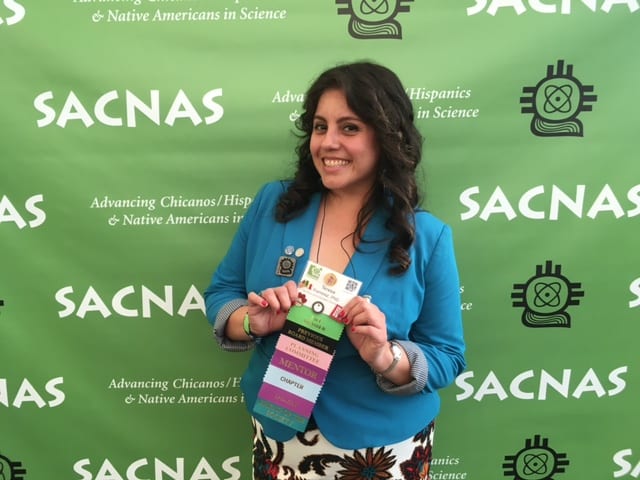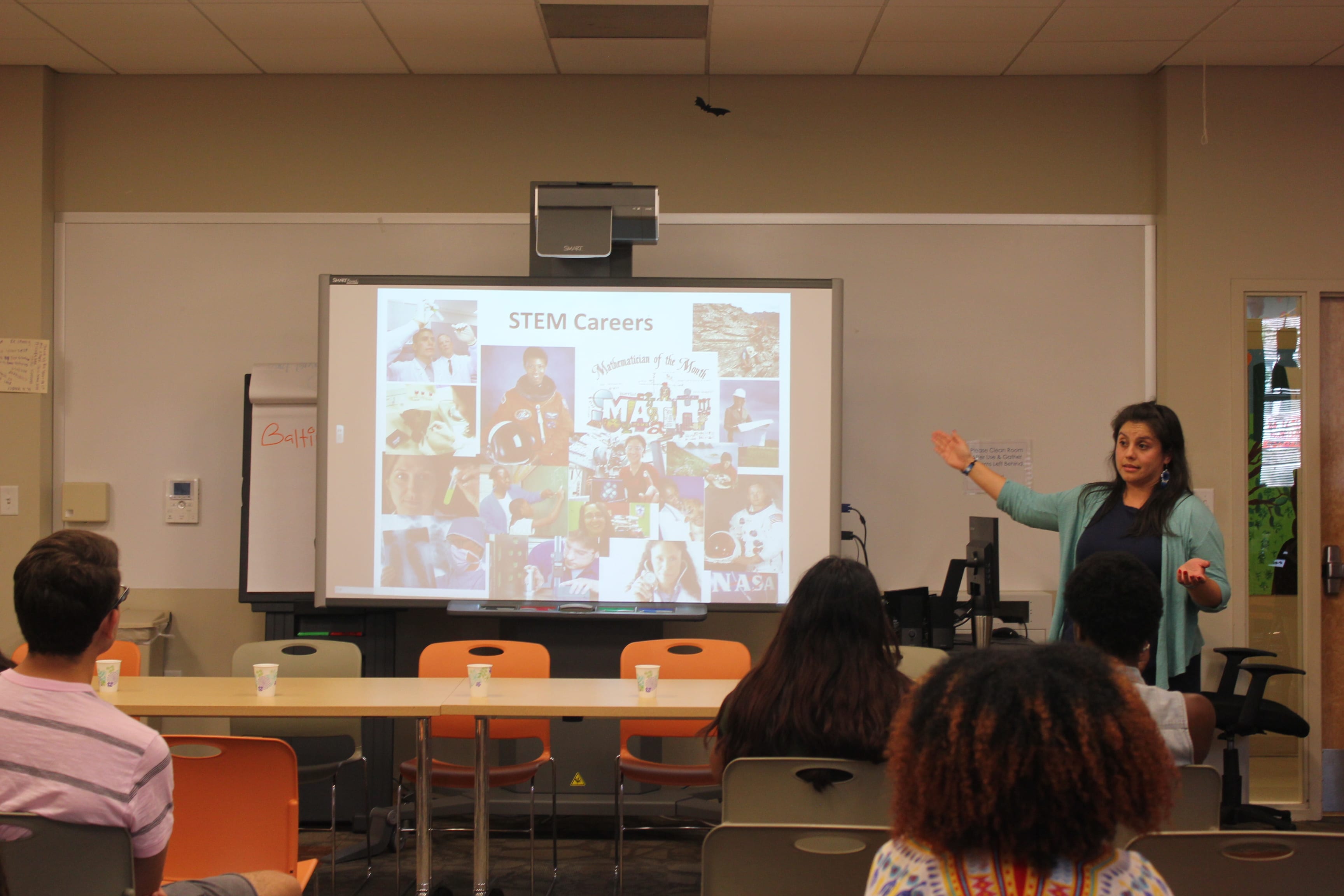Posted by: Teresa Ramírez, PhD, 2016-17 ASHG/NHGRI Genetics & Education Fellow
Attending national conferences can be intimidating or exciting. The first one I attended was quite overwhelming. Do you remember how you felt at yours? Did you ask yourself questions like: why is it important to attend a national conference? How do I prepare? How can I make the most of it? What should I do and how do I network? These thoughts can be nerve-wracking, but don’t worry: these tips will help ease your nerves and guide you to prepare for the next one.
Meet People and Follow Up
As an undergraduate student at California State University, Dominguez Hills, I participated in the NIH-funded Minority Biomedical Research Support (MBRS) program, where I learned about the do’s and don’ts of attending conferences. First, look and dress professionally because first impressions make a difference.

Second, be sure to have business cards. It might seem outdated, but business cards can help break the ice and start conversations. I know that reaching out and introducing yourself might be uncomfortable, but it will all be worthwhile even if you end up feeling dead tired and drained. Make sure your business cards include your full name, degree/title, organization, contact information, LinkedIn URL, and something that can grab people’s attention in a positive way. One of my tips is to immediately write on the back of each card collected the date you met that person, key words to help you remember the conversation, and the name of the event/location. These notes are helpful because, believe it or not, you will start collecting tons of cards and by the end of the day, you will forget which card belongs to whom. Nurture these new relationships by writing follow up emails; showing interest and professionalism can set you apart.

By networking, you never know who you can meet and what the outcome can be. You can meet your next mentor, find out about a new opportunity, or start a new collaboration. You might even get invited to do a research talk or share your story with K-16 students, like I did. Keep reminding yourself to be open-minded and network with new people during meals. Attendees usually feel comfortable sitting with people they know, but this is the right time to try sitting with unfamiliar faces to start a conversation. During this time, you have the opportunity to network, introduce yourself, and even use your scientific elevator pitch. I have sat in tables with total strangers feeling a little uncomfortable at first but at the end, had wonderful conversations and met new friends.
Please check out the ASHG website for more information on trainee opportunities, resources, and ASHG 2017.
Teresa Ramírez, PhD, is the 2016-2017 ASHG/NHGRI Genetics & Education Fellow. Learn more about the Genetics & Education Fellowship.
